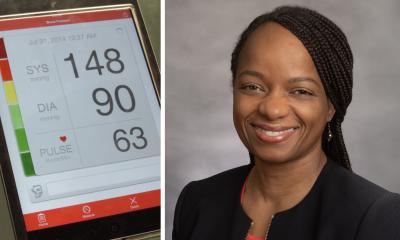Cardiovascular disease can be detected earlier during sleep
A specially customised pulse oximeter attached to the finger can be used to detect changes in heart and vessel function while you sleep, and this simple technique can even identify patients at increased risk of cardiovascular disease, reveals research from the University of Gothenburg, Sweden.
A pilot study of 148 people showed that more than 80% of high-risk patients were picked up by this simple and risk-free measurement technique. The results were published recently in the journal Chest.
In the study, researchers used a modified version of the pulse oximeter currently used to detect various sleep disorders during the night, such as apnoea. The method is based on the measurement of five components of the signal from the finger: pulse wave attenuation, pulse rate acceleration, pulse propagation time, respiration-related pulse oscillation and oxygen desaturation.
“We then weigh up these components in a model to assess how great a risk the patient runs of cardiovascular disease,” says Ludger Grote, associate professor at the Center for Sleep and Vigilance Disorders at the Sahlgrenska Academy and senior consultant at Sahlgrenska University Hospital. “We believe that the patient's values reflect the risk at least as well as the individual's risk factors ‘on paper’.”
The method may result in quicker and easier identification of patients at high risk of cardiovascular disease. It is hoped that it can also be used to assess the effects of treatment for cardiovascular disease, such as how weight loss and exercise can help prevent problems.
The research results are the result of teamwork between docent Ludger Grote, professor Jan Hedner, researcher Zou Ding and researcher Derek Eder from the Sahlgrenska Academy and computer engineer Dirk Sommermeyer from Karlsruhe Institute of Technology in Germany, a visiting researcher at the Sahlgrenska Academy.
The team is now developing prototypes for a future portable device that can be used clinically. Before it can be taken into use, larger research studies are needed to confirm the results. Grote says that the team has already begun this process.
* Bibliographische Angaben'Chest', Oximeter-based autonomic state indicator algorithm for cardiovascular risk assessment. Authors: Grote L, Sommermeyer D, Zou D, Eder DN, Hedner J
Picture: pixelio.de
07.04.2011





